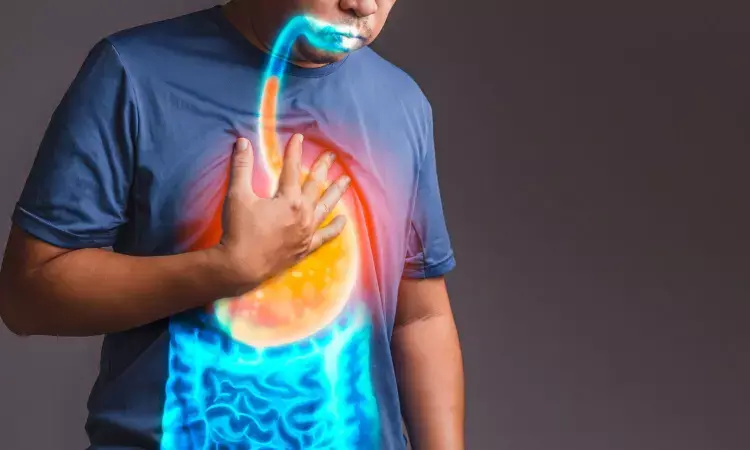- Home
- Medical news & Guidelines
- Anesthesiology
- Cardiology and CTVS
- Critical Care
- Dentistry
- Dermatology
- Diabetes and Endocrinology
- ENT
- Gastroenterology
- Medicine
- Nephrology
- Neurology
- Obstretics-Gynaecology
- Oncology
- Ophthalmology
- Orthopaedics
- Pediatrics-Neonatology
- Psychiatry
- Pulmonology
- Radiology
- Surgery
- Urology
- Laboratory Medicine
- Diet
- Nursing
- Paramedical
- Physiotherapy
- Health news
- Fact Check
- Bone Health Fact Check
- Brain Health Fact Check
- Cancer Related Fact Check
- Child Care Fact Check
- Dental and oral health fact check
- Diabetes and metabolic health fact check
- Diet and Nutrition Fact Check
- Eye and ENT Care Fact Check
- Fitness fact check
- Gut health fact check
- Heart health fact check
- Kidney health fact check
- Medical education fact check
- Men's health fact check
- Respiratory fact check
- Skin and hair care fact check
- Vaccine and Immunization fact check
- Women's health fact check
- AYUSH
- State News
- Andaman and Nicobar Islands
- Andhra Pradesh
- Arunachal Pradesh
- Assam
- Bihar
- Chandigarh
- Chattisgarh
- Dadra and Nagar Haveli
- Daman and Diu
- Delhi
- Goa
- Gujarat
- Haryana
- Himachal Pradesh
- Jammu & Kashmir
- Jharkhand
- Karnataka
- Kerala
- Ladakh
- Lakshadweep
- Madhya Pradesh
- Maharashtra
- Manipur
- Meghalaya
- Mizoram
- Nagaland
- Odisha
- Puducherry
- Punjab
- Rajasthan
- Sikkim
- Tamil Nadu
- Telangana
- Tripura
- Uttar Pradesh
- Uttrakhand
- West Bengal
- Medical Education
- Industry
Laryngeal Recalibration Therapy may Improve Chronic Throat Symptoms in GERD Patients: Study

A new study revealed that Laryngeal Recalibration Therapy (LRT) guided by speech-language pathologists (SLPs) effectively reduces chronic laryngopharyngeal symptoms like cough, throat clearing, voice changes, paradoxic vocal fold movement and laryngospasm. These symptoms are often caused by local irritation from substances like refluxate and increased sympathetic tone. The key findings were published in the recent issue of American Journal of Gastroenterology.
The study evaluated the symptom response to LRT in patients with chronic laryngopharyngeal symptoms who were undergoing evaluation for gastroesophageal reflux disease (GERD). This study prospectively followed adults who were referred for GERD evaluation and the participants had to complete at least two SLP-directed LRT sessions to be included
This research collected data from various diagnostic tools, including endoscopy, ambulatory reflux monitoring and patient-reported outcomes. The primary focus was on the symptom response to LRT.
A total of 65 participants completed the study with a mean age of 55.4 years. Most of them were female (71%) with a mean body mass index of 25.6 kg/m² where the participants underwent an average of 3.7 LRT sessions. Also, 85% of the participants met the criteria for symptom response that indicated significant improvement in their conditions.
The study examined specific subgroups and found that among the participants with only laryngopharyngeal symptoms, 87% responded positively to LRT. Those with both laryngopharyngeal and esophageal symptoms had an 84% positive response rate. The symptom response rates were analyzed in participants who underwent reflux monitoring by revealing similar positive outcomes regardless of GERD status. Also, 86% of participants with proven GERD, 89% of the participants with inconclusive GERD and 77% of participants without GERD showed improvement of symptoms and quality of life.
The findings highlight the effectiveness of SLP-directed LRT in treating chronic laryngopharyngeal symptoms, regardless of GERD diagnosis or the presence of esophageal symptoms. This suggests that LRT can be a valuable component in the multidisciplinary management of these conditions.
The study emphasizes the role of mechanical desensitization and cognitive recalibration in suppressing hyper-responsive laryngeal patterns. Overall, LRT offers a promising treatment option for individuals who suffer from chronic laryngopharyngeal symptoms. The high response rates observed in the study support the integration of LRT into the broader management strategy for these conditions which can potentially benefit a wide range of patients.
Source:
Walsh, E., Krause, A. J., Greytak, M., Kaizer, A. M., Weissbrod, P. A., Liu, K., Taft, T., & Yadlapati, R. (2024). Laryngeal Recalibration Therapy Improves Laryngopharyngeal Symptoms in Patients With Suspected Laryngopharyngeal Reflux Disease. In American Journal of Gastroenterology. Ovid Technologies (Wolters Kluwer Health). https://doi.org/10.14309/ajg.0000000000002839
Neuroscience Masters graduate
Jacinthlyn Sylvia, a Neuroscience Master's graduate from Chennai has worked extensively in deciphering the neurobiology of cognition and motor control in aging. She also has spread-out exposure to Neurosurgery from her Bachelor’s. She is currently involved in active Neuro-Oncology research. She is an upcoming neuroscientist with a fiery passion for writing. Her news cover at Medical Dialogues feature recent discoveries and updates from the healthcare and biomedical research fields. She can be reached at editorial@medicaldialogues.in
Dr Kamal Kant Kohli-MBBS, DTCD- a chest specialist with more than 30 years of practice and a flair for writing clinical articles, Dr Kamal Kant Kohli joined Medical Dialogues as a Chief Editor of Medical News. Besides writing articles, as an editor, he proofreads and verifies all the medical content published on Medical Dialogues including those coming from journals, studies,medical conferences,guidelines etc. Email: drkohli@medicaldialogues.in. Contact no. 011-43720751


